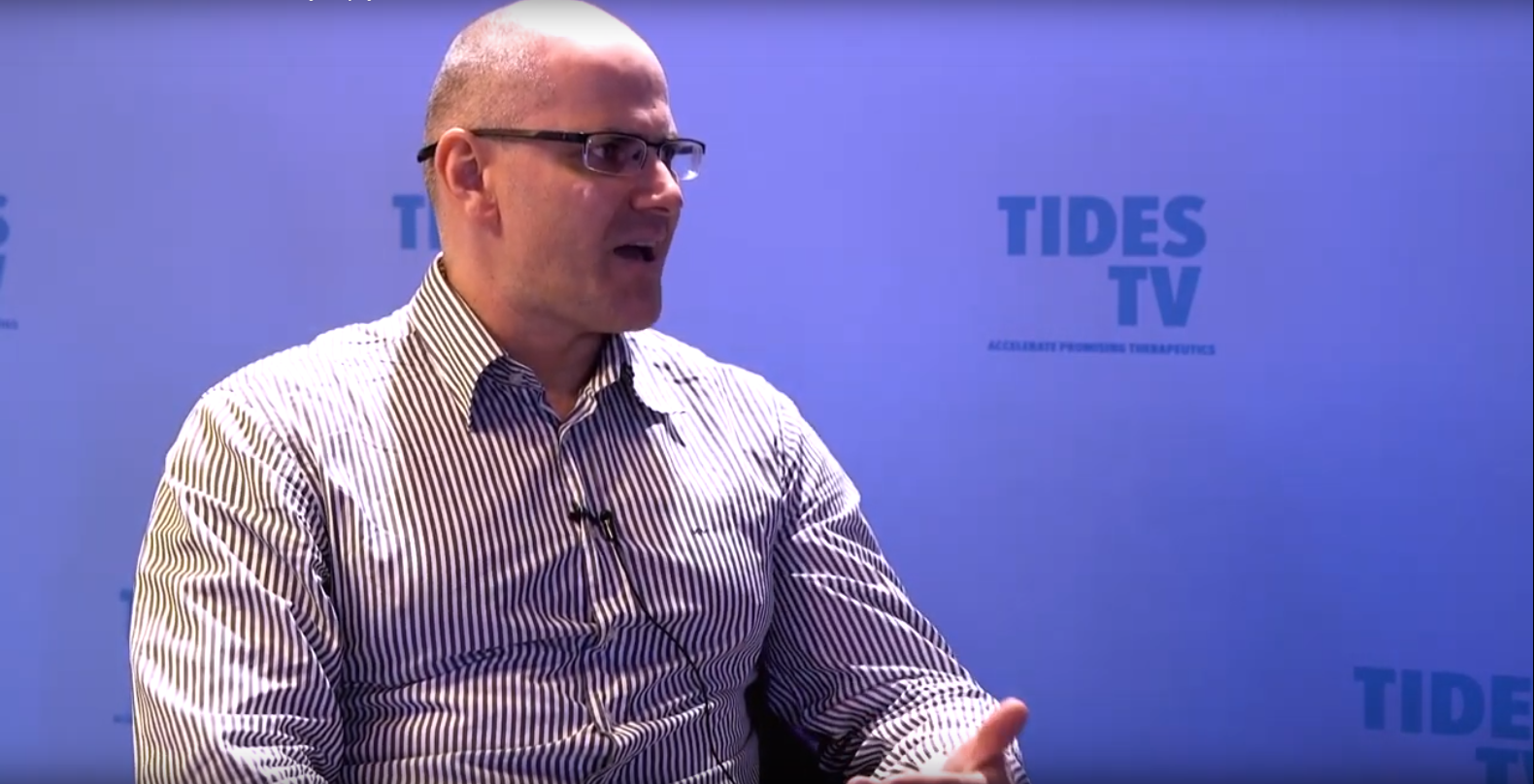ART BioScience’s mRNA-based treatment for Duchenne muscular dystrophy

Dr. Aleks Schein, Chief Scientific Officer at ART BioScience joined us to discuss its mRNA-based treatment for Duchenne muscular dystrophy and how the therapy could expand to other genetic disorders.
You’re developing a mRNA-based treatment of Duchenne muscular dystrophy. Can you tell us about what that is and how it works?
It works in a very simple way. It does exactly what an mRNA does: delivers a message to protein synthesis machinery in the cell and that machine just makes a protein that’s missing in the patient’s cell.
And what benefits are there using this mRNA therapeutic?
Well specifically for that disease, it’s very important, because Duchenne muscular dystrophy has many genetic backgrounds. There are many mutations associated with the disease and there are treatments which go just for one specific mutation. They correct it or they replace what’s missing, but it only works in one case and usually that’s five to ten percent of the patients. The mRNA is supposed to treat everyone regardless of the genetic background they have.
Do you see this therapy expanding to other genetic disorders?
We are doing it in a hard way because the gene that is affected in Duchenne muscular dystrophy is very long. It’s one of the longest genes in the human genome and therefore the mRNA is also extremely long. So if we do that, we could be potentially expanding to any genetic disease which is associated with a gene defect and when any protein is missing, we can replace that by providing [the] appropriate messenger RNA.
I assume there are some quite meaty challenges there! What are the biggest ones that still need to be overcome?
We have two main challenges. One is specific to what we do and that, as I mentioned, is the size of the mRNA. It’s not easy task to produce that in a lab - RNAs of that size are not usually made synthetically. We have a product code developed specifically for that and it sort of works fine.
The next challenge is general for the mRNA therapy field and that is how to get this molecule into the cell, as RNA is usually very big and it has a strong negative charge. It means it wouldn’t normally get through the cell membrane, which is built with lipids, and one of the tasks of the cell membrane is to reject long polar molecules like RNA, like for example, virus infection, so cells would fight against having that molecule inside them. That is a very big challenge in the field that's been addressed by many companies, many players, with a number of approaches. We are developing our own delivery system that would work for such a big RNA.
More generally, where do you see the industry going?
mRNA is an expanding field - I hope it will keep expanding. There are a number of roads that the field is taking. There are bigger companies and smaller players in the field. Mainly what mRNA therapy is today is immunotherapy. As many companies develop mRNA vaccines, instead of injecting a protein and waiting for the body to make antibodies against that protein, the idea is to inject the RNA and then the body will make a protein and the antibodies for it. That is relatively easy and the delivery road that I mentioned is also quite straightforward.
Protein-replacement therapy is what ART BioScience is going for and is much more challenging, but as we work with Duchenne muscular dystrophy which is a severe disease and there is no treatment, and we’re financed by the parents whose children are affected with the disease, we don’t care how difficult it is. We just go and we’re dedicated to find a solution. There are also other companies who work with protein replacement therapy regardless of all the difficulties associated with it. It’s a very promising field and I’m really excited about that.
The interview was filmed for TIDES TV at KNect365's TIDES Europe in November 2018.
RELATED ARTICLE: Oligo, Peptide, mRNA and CRISPR Therapeutics Survey 2019 - tell us your views